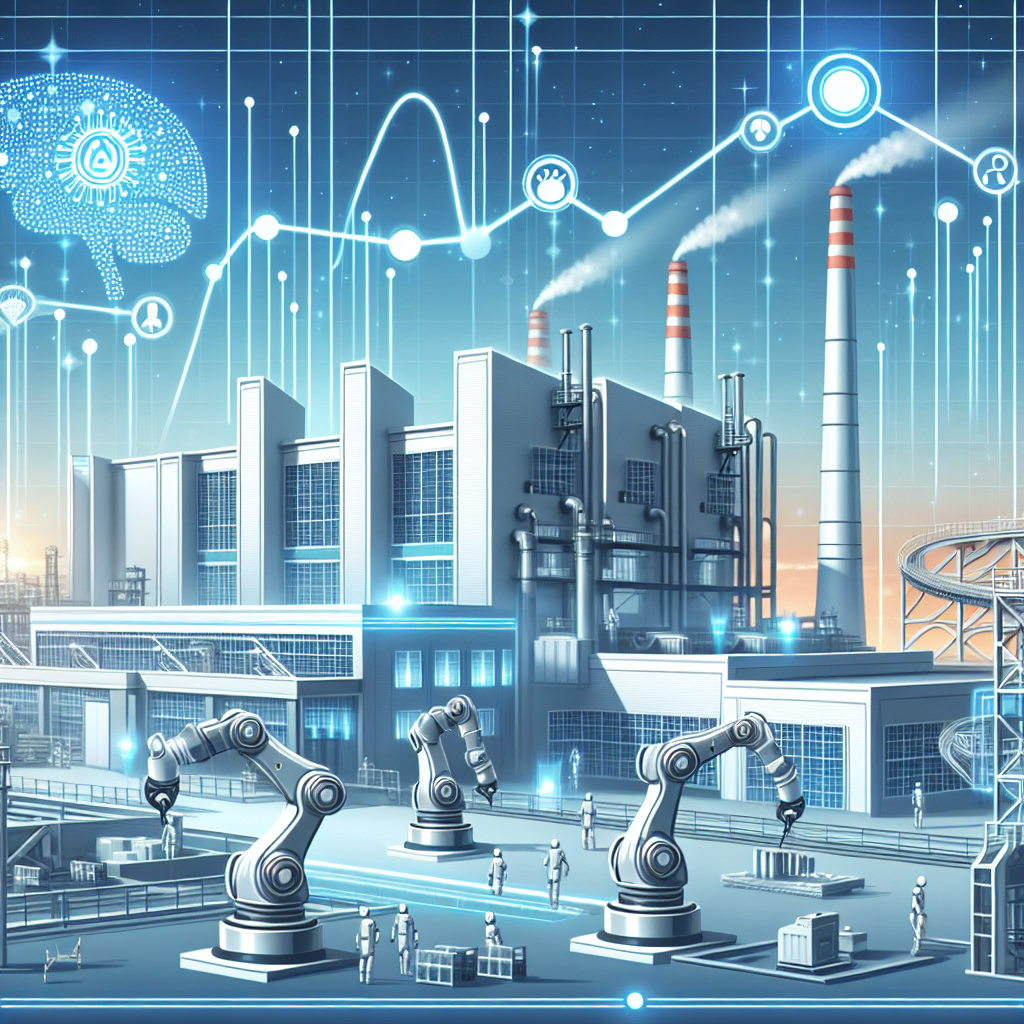The Future of AI-driven Smart Manufacturing Technologies
In recent years, the manufacturing industry has seen a significant shift towards the integration of artificial intelligence (AI) and smart technologies into their operations. This move towards smart manufacturing is driven by the need for increased efficiency, productivity, and competitiveness in an ever-changing global market. AI-driven smart manufacturing technologies are revolutionizing the way products are designed, produced, and distributed, leading to a more streamlined and agile manufacturing process.
The integration of AI into manufacturing processes has the potential to transform the industry in several key ways. One of the most significant benefits of AI-driven smart manufacturing technologies is the ability to optimize production processes in real-time. By harnessing the power of AI algorithms, manufacturers can analyze vast amounts of data to identify inefficiencies, predict maintenance needs, and optimize production schedules to maximize output and minimize downtime.
AI-driven smart manufacturing technologies also enable manufacturers to enhance product quality and consistency. By using AI-powered sensors and monitoring systems, manufacturers can detect defects and anomalies in real-time, allowing for immediate corrective action to be taken. This not only improves product quality but also reduces waste and rework, leading to cost savings and improved customer satisfaction.
Another key advantage of AI-driven smart manufacturing technologies is the ability to enable autonomous decision-making. By integrating AI algorithms into production processes, manufacturers can automate routine tasks and processes, freeing up human workers to focus on more complex and strategic tasks. This shift towards automation not only increases efficiency but also reduces the risk of human error, leading to improved safety and reliability in manufacturing operations.
The future of AI-driven smart manufacturing technologies is bright, with new advancements and innovations constantly being developed. One area of particular interest is the use of AI-powered robotics in manufacturing processes. By combining AI algorithms with robotic systems, manufacturers can create highly flexible and adaptive production lines that can quickly adapt to changing market demands and production requirements.
Another emerging trend in AI-driven smart manufacturing technologies is the use of augmented reality (AR) and virtual reality (VR) technologies. By leveraging AR and VR, manufacturers can create immersive and interactive training programs for employees, as well as virtual simulations of production processes to optimize workflow and improve efficiency.
In addition to these technological advancements, the future of AI-driven smart manufacturing technologies will also be shaped by the increasing connectivity of devices and systems through the Internet of Things (IoT). By connecting machines, sensors, and other devices to the internet, manufacturers can create a truly interconnected and intelligent manufacturing ecosystem that can communicate and collaborate in real-time to optimize production processes and improve overall efficiency.
Overall, the future of AI-driven smart manufacturing technologies holds great promise for the industry. By harnessing the power of AI algorithms, robotics, AR/VR technologies, and IoT connectivity, manufacturers can create a more efficient, agile, and competitive manufacturing process that is capable of adapting to the demands of a rapidly changing global market.
FAQs
Q: What are some of the key benefits of AI-driven smart manufacturing technologies?
A: Some of the key benefits of AI-driven smart manufacturing technologies include optimized production processes, enhanced product quality and consistency, autonomous decision-making, and improved efficiency and competitiveness.
Q: How can AI-driven smart manufacturing technologies improve product quality?
A: By using AI-powered sensors and monitoring systems, manufacturers can detect defects and anomalies in real-time, allowing for immediate corrective action to be taken. This not only improves product quality but also reduces waste and rework, leading to cost savings and improved customer satisfaction.
Q: What are some emerging trends in AI-driven smart manufacturing technologies?
A: Some emerging trends in AI-driven smart manufacturing technologies include the use of AI-powered robotics, augmented reality (AR) and virtual reality (VR) technologies, and the increasing connectivity of devices and systems through the Internet of Things (IoT).
Q: How can manufacturers benefit from integrating AI algorithms into their production processes?
A: By integrating AI algorithms into production processes, manufacturers can automate routine tasks and processes, optimize production schedules, and improve overall efficiency and competitiveness in the industry.
Q: What is the future outlook for AI-driven smart manufacturing technologies?
A: The future outlook for AI-driven smart manufacturing technologies is bright, with new advancements and innovations constantly being developed. By leveraging the power of AI algorithms, robotics, AR/VR technologies, and IoT connectivity, manufacturers can create a more efficient, agile, and competitive manufacturing process that is capable of adapting to the demands of a rapidly changing global market.

